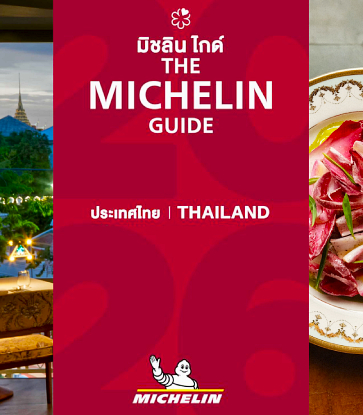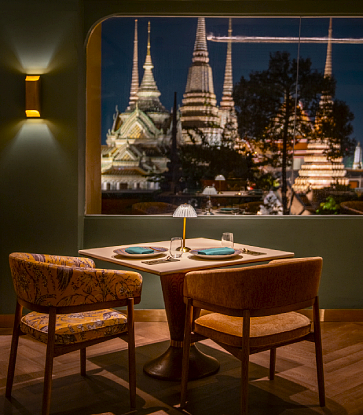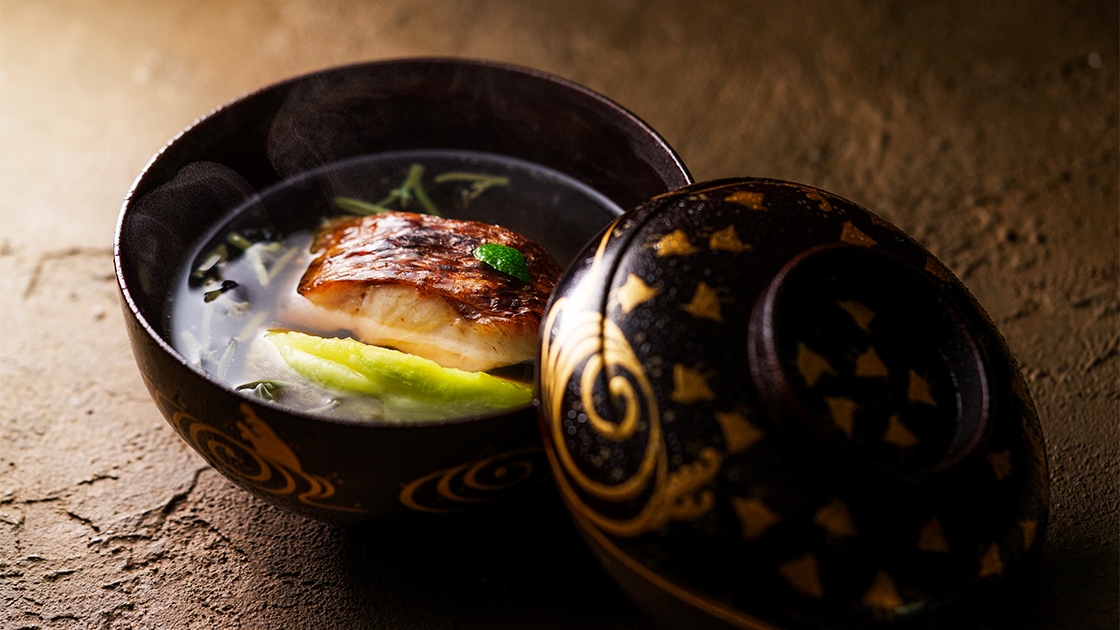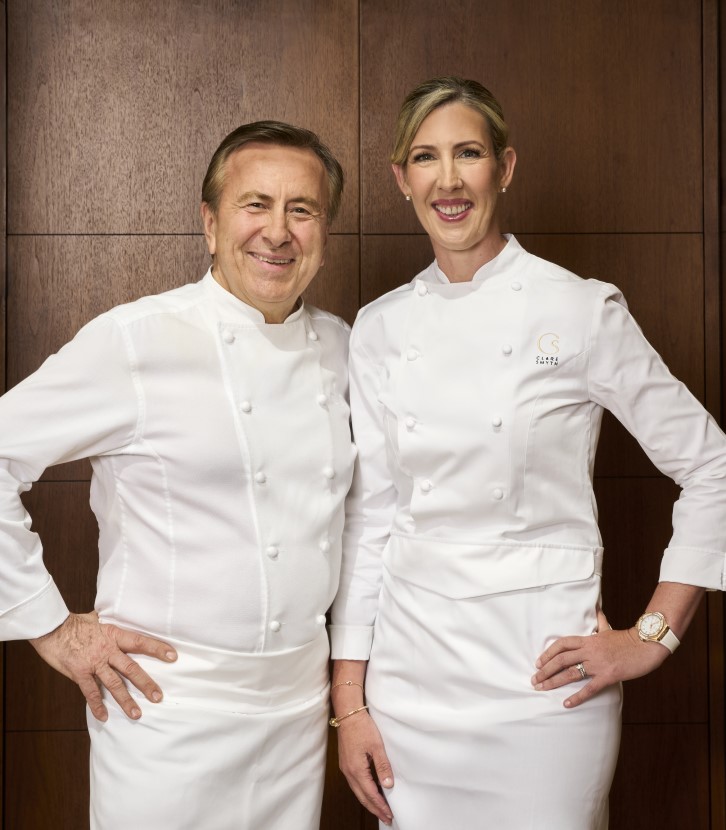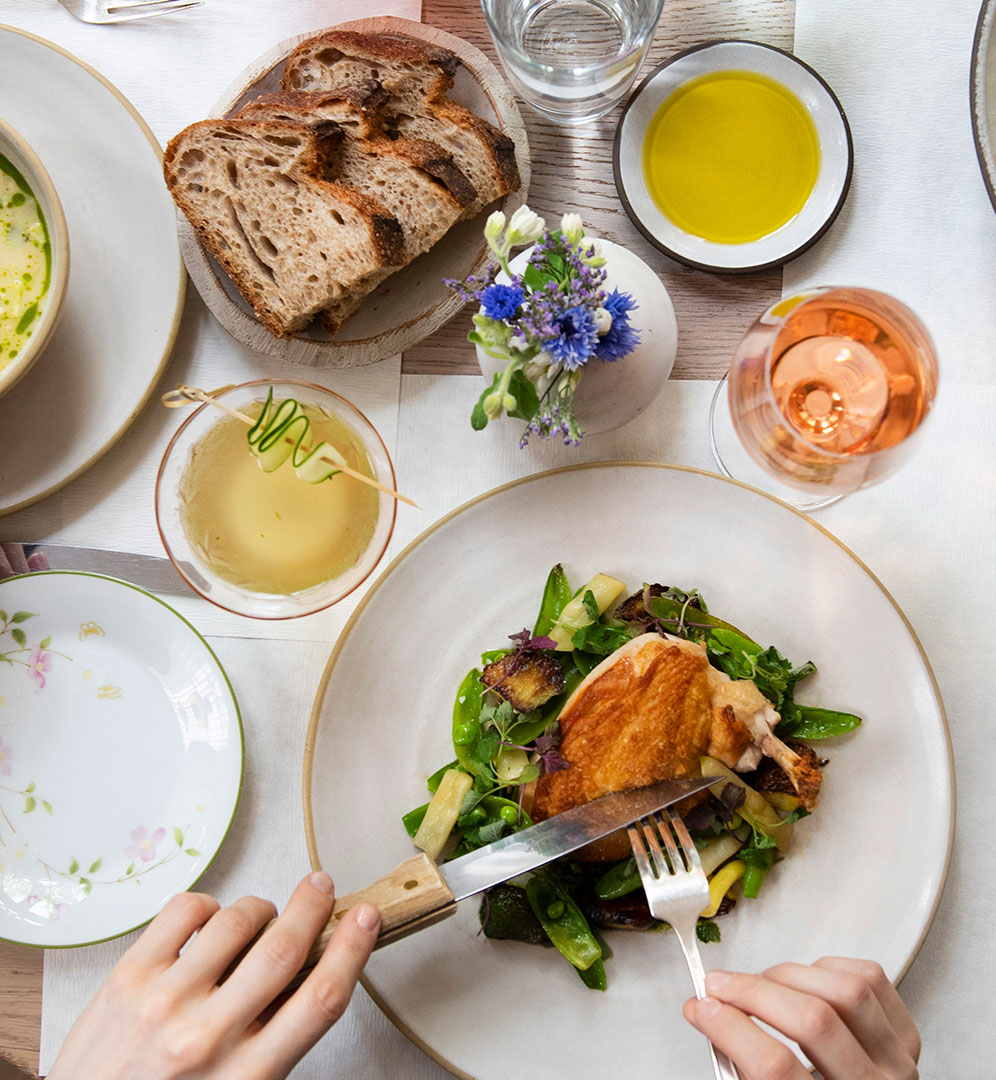As the owner of Sushi Kanesaka, he was honored with the Mentor Chef Award in the MICHELIN Guide Tokyo 2025.
This accolade is given to chefs whose work and careers serve as a model for others, celebrating their role in nurturing young talent and contributing to the growth of the restaurant industry through passionate guidance.

From Baseball Dreams to a Pursuit of Sushi
Kanesaka was born in Chiba. Growing up, the best portion of rice was served to his older brother, leaving him with the less desirable portion mixed with burnt grains.
This frustration sparked his determination to become a professional baseball player someday so that he could enjoy a proper bowl of rice, and he devoted his youth to the pursuit of that dream.
Along the way, however, challenges mounted. A twist of fate led him to begin working part-time at a sushi restaurant where he was boarding, steering him into the culinary world.
Resolving in his heart to go all-in and become the best in the world, he embarked on his journey as a sushi chef.
Sushi as Haute Couture
Sushi Kanesaka in Ginza is an exclusive restaurant with only eight counter seats.‘Everyone has ten fingers. Each of mine is dedicated to one guest, with two fingers held in reserve to ensure proper attention,’ Kanesaka explains. He likens the art of serving sushi to his days as an outfielder, where he could predict the ball’s trajectory by the sound and angle of the bat hitting it. ‘At the counter, this attention to detail continues; observing a guest’s teacup’s tilt signals the perfect moment to top it up without being asked. Making a guest ask for more tea would mean I failed my duty.’
He also remarks on how the word ‘omakase’ has taken on a life of its own. In the past, the owner, familiar with the tastes of regulars, would stand in front of the glass case of ingredients and suggest choosing for them, confident in knowing what they would enjoy.
Nowadays, it often refers to a set menu served to all simultaneously, which Kanesaka believes is more aligned with 'okimari' (a predetermined menu).
In Ginza, the essence of a sushi experience lies in its flexibility, allowing patrons to savour a bite before or after drinks, adjusting to their mood and appetite.

Love, Courage and Grit
A banner in his office reads ‘Love, Courage, and Grit’.
To Kanesaka, love symbolizes gratitude; the understanding that a sushi chef cannot make it on his own: his work is made possible by fishermen, brokers, mentors, colleagues, and, most importantly, his patrons. One must not forget the gratitude owed to those who have made it possible to be where he is today.
Courage is the ability to hold peers accountable. True colleagues should strive to push each other and grow together.
And grit? It is the relentless spirit that says, ‘Work tirelessly, and success will follow.’ That is what business is all about.
Learning Outside of the Sushi Bar
Kanesaka organises activities for his team, such as waterfall meditations, New Year’s Day runs, and golf competitions, believing that learning extends beyond the workplace.‘Playing golf a few times a year teaches one how to dress in a jacket—an essential part of understanding that world,' he notes.
Just as shuffling your feet is prohibited on a golf course, noise from shuffling sandals would disrupt the ambiance at Sushi Kanesaka.
‘Golf naturally teaches you how to walk gracefully.'
He also says he prefers fax and handwritten notes to email, even today.
This is because he believes that writing by hand holds significance. When you exchange handwritten messages daily, you get a sense of the other person’s state of mind, giving you the opportunity to ask them if something’s wrong.
His training transcends technical skills to emphasise human connection—a philosophy reflected in his careful attention to attitude and physical appearance.

Daily Repetition Makes the Artisan
To Kanesaka, a true artisan is someone who builds their craft through daily repetition.He says the same goes for a sushi chef.
For that reason, he works daily to instill in his apprentices the importance of the five essentials: ‘shari’ (sushi rice), ‘gari’ (pickled ginger), ‘agari’ (green tea), ‘nori’ (seaweed), and ‘nikiri’ (sweet soy sauce), ensuring these elements are second nature.
He says, ‘Elevating the taste of fish and shellfish is the true work of a sushi chef’,
teaching young employees not just techniques but also the significance behind them.
‘Routine becomes tradition over time.'
Promoting World Peace Through Sushi
Having Sushi Kanesaka locations overseas, Kanesaka views sushi as a vessel for sharing Japanese culture globally.‘There is no country like Japan,' he says with pride.
Each piece of sushi reflects his life’s dedication, embodying the spirit of Japan.
‘The Chinese character for “food” implies making people better. True to this meaning, I want sushi to contribute not only to Japan but to the world.’
Unlike other cuisines, sushi is crafted by hand.
‘If we can extend those hands to others, transcending race and gender, the world might truly become one community.’
For Kanesaka, fostering world peace through sushi has been what has driven him for over 35 years as a sushi chef, and that remains true today.
‘I refuse to be outdone by the younger generation. The day I lose that feeling is the day I retire.’ His goal is to become the best sushi chef in the world. That drive is brimming with ambition.
Shinji Kanesaka continues to shape dreams and sushi in Ginza.

Top Image:ⒸMichelin







